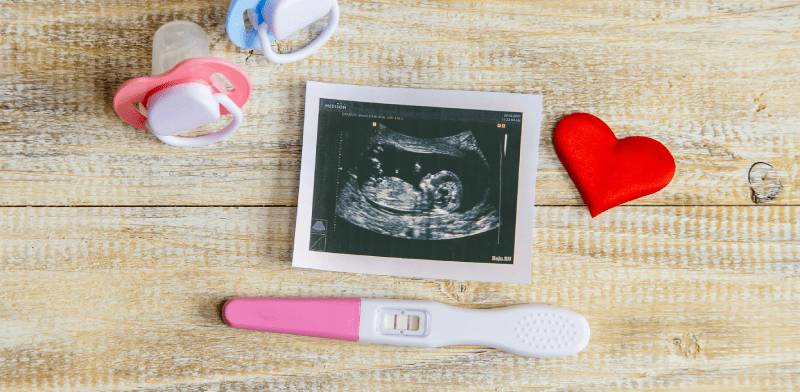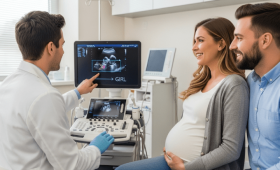IVF and Gender Selection in Cyprus: A Comprehensive Guide
The Rise of Cyprus in Health Tourism
The desire to build a family and become a parent is one of the most fundamental motivations that has existed throughout human history. Modern medicine, with IVF treatment (in vitro fertilization), offers significant solutions on this path. However, in Turkey, as in many other countries, medical practices in this field are strictly limited by legal and ethical regulations. The current legal framework in Turkey does not permit the use of certain advanced reproductive techniques, particularly donation (sperm, egg, embryo donation) and gender selection. These restrictions direct couples who need or desire these treatments toward international destinations where legal freedoms are broader. In this regard, with its geographical proximity and legal regulations, Northern Cyprus is positioned as a prominent, cost-effective, and attractive option for individuals in Turkey.
This situation transforms the search for treatment from being merely a medical process into a matter of legal choice. Although Turkey has high standards and quality healthcare services in health tourism , the main reason a couple might travel abroad for such treatments is not primarily cost or success rates, but rather the desire to undergo a procedure that is not legally possible in Turkey. This “choice of law” dynamic positions Cyprus not only as a healthcare center but also as a safe haven from legal restrictions. This report has been prepared to guide individuals seeking information in this field by comprehensively addressing the costs, success rates, legal framework, and logistical advantages of IVF and gender selection treatment in Cyprus.

Legal Situation and Restrictions in Turkey
IVF treatment success rates in Turkey largely parallel international standards. According to medical data, the woman’s age is the most critical factor affecting the success of IVF treatment. While the chance of pregnancy is in the range of 60-70% for women younger than 35, this rate drops to 30% for women aged 38-40 and below 5% for women aged 43 and older. This data highlights the importance for couples to start treatment early.
However, some specific applications of IVF treatment, such as donation and gender selection, are legally prohibited in Turkey. According to the Turkish Penal Code and relevant Ministry of Health regulations, sperm, egg, and embryo donation are strictly forbidden. Similarly, gender selection based on personal preferences like “family balancing” is not legal. Gender selection is only permitted in exceptional medical cases, such as to prevent the transmission of genetic diseases that appear in a specific gender, like hemophilia or Duchenne muscular dystrophy.
These legal restrictions make Turkey an unviable option for couples seeking donation or gender selection. Interestingly, despite these procedures being forbidden in Turkey, the legal status of children born from donation treatments performed abroad is protected by the Turkish Civil Code. The line of descent for a child born through donation is established with the woman who gave birth and the man within the marriage, not with the genetic donor. This legal paradox, while preventing the treatment in Turkey, provides a significant guarantee to couples who seek treatment abroad that their future children will be legally recognized as their own in Turkey. This situation has paved the way for a portion of the market created by Turkey’s restrictions to be directed toward destinations like Cyprus, establishing Cyprus as a legal transit point.
Key Advantages That Make Cyprus Stand Out
The main factors that make Cyprus a leading destination for IVF and gender selection treatments are its legal freedom, cost-effectiveness, and geographical proximity. Northern Cyprus offers a legal framework for donation (egg, sperm, embryo) and gender selection treatments under Law No. 57/2014, “Law Regulating the Rules Concerning the Transplantation of Human Cells, Tissues, and Organs.” These legal regulations provide treatment opportunities not only for married couples but also for single women and same-sex couples.
The legal regulations in Cyprus mandate donor anonymity. While clinics cannot share pictures or contact information of donors, in some cases, donor codes can be provided to access information on the websites of European sperm banks. This requirement of anonymity acts as a kind of safety shield, preventing future legal and ethical issues for both the donor and the recipient family.
Cyprus also offers significant logistical advantages due to its geographical proximity to Turkey and visa-free travel. This proximity substantially reduces patients’ travel burden and costs. Furthermore, treatments in Cyprus are much more affordable compared to developed countries like the US and the UK. This economic difference makes Cyprus not only a legal alternative but also a healthcare investment point that offers significant financial savings. In addition to this cost advantage, Cyprus has experts who are internationally trained and speak both English and Turkish. This provides an advantage in terms of quality and trust, beyond just the perception of low cost.
Cyprus is a destination where health tourism merges with traditional tourism areas like nature, sea, sand, and sun. Patients have the opportunity to combine their treatment process with a recuperative holiday. The fact that health tourism can continue throughout all 12 months of the year also increases the economic value of the destination.
IVF and Gender Selection Methods in Cyprus
Gender selection in Cyprus is generally performed using advanced genetic technologies such as Preimplantation Genetic Diagnosis (PGD) or Preimplantation Genetic Screening (PGT-A). These methods are used to determine the chromosome count and gender of fertilized embryos before transfer. The accuracy of these tests provides over 99% success in gender determination.
The primary benefit of PGT-A is not limited to gender selection. This method also allows for the screening of embryos for genetic abnormalities (aneuploidy), which enables the selection of the healthiest embryo for transfer. This genetic screening increases the success of pregnancy while also significantly reducing the risk of miscarriage and having a baby with a genetic disorder. This offers an additional medical benefit that enhances the overall success of the treatment, beyond gender selection alone.
The sperm and eggs used for donation treatments in Cyprus are imported from sperm and egg banks abroad in accordance with the strict criteria set by the TRNC Ministry of Health. Donor anonymity is a legal requirement, but this does not mean that donor information is limited. Donor profiles may include physical characteristics such as height, eye color, and blood type, as well as details like educational level, personality traits, and hobbies.
Cost Analysis and International Comparison
IVF treatments in Cyprus are much more affordable compared to many other countries. The package prices offered for standard IVF/ICSI treatment, IVF with sperm donation, egg donation, or gender selection provide a serious economic advantage when compared to costs that can reach tens of thousands of dollars in countries like the US and the UK.
Below is a table showing the average costs for different types of treatment in Cyprus. It should be noted that these prices may vary depending on the clinic and the details of the treatment.
| Treatment Type | Average Cost (Euro) |
| Standard IVF/ICSI | €2,000 – €4,000 |
| IVF with Sperm Donation | €3,000 – €5,500 |
| IVF with Egg Donation | €4,000 – €7,000 |
| IVF with Gender Selection (PGT/PGD) | €6,000 – €8,000 |
The table above reflects average prices obtained from various sources.
These prices include the basic costs of the treatment. However, when planning the total budget, additional expenses such as medication costs, plane tickets, accommodation, and local tests must also be considered.
From an international perspective, Cyprus’s cost-effectiveness is more clearly understood:
- United States: The cost of IVF with gender selection, including medication and genetic tests, averages around $27,000. While the cost of basic IVF procedures is in the range of $9,000-$14,000, genetic tests can add an extra €4,500-€5,500.
- United Kingdom: The average cost of an IVF cycle with donor sperm is approximately £7,750 (~€9,000).
- Other European Countries: In countries like Spain and Greece, the cost of donor sperm can be an additional €800-€1,500 on top of the standard IVF cycle cost. Total treatment costs can increase to the range of €8,000-€15,000 with the inclusion of donation and additional procedures.
This comparison clearly shows that Cyprus is not only a legal alternative but also offers a significant potential for economic savings.

Success Rates: A Realistic Perspective
The success rates announced by clinics are one of the most important factors in the decision-making process for potential patients. The data provided by clinics in Cyprus shows very high pregnancy rates, especially in younger age groups. The table below presents pregnancy rates for different types of treatment and age groups, based on 2022-2023 data.
| Age Group | IVF (%) | Egg Donation (%) | Sperm Donation (%) | Gender Selection (%) |
| 20-29 | 90 | 93 | 88 | 94 |
| 30-34 | 88 | 90 | 85 | 89 |
| 35-39 | 85 | 89 | 80 | 84 |
| 40-44 | 80 | 82 | 76 | 77 |
| 45+ | 70 | 73 | 74 | 75 |
E-Tablolar’a aktar
The table above reflects the pregnancy rates announced by clinics for the 2022-2023 period.
It is important to note that these rates refer to “pregnancy rates,” not “live birth rates.” The pregnancy process consists of a series of stages that begin after the transfer and end with a live birth; during this process, there is a risk of miscarriage due to genetic abnormalities or other factors. Therefore, while high pregnancy rates are promising, it is critical to have realistic expectations. The PGT-A method used for gender selection can provide additional benefits such as increasing the chance of pregnancy and reducing the risk of miscarriage.
These high rates offered by clinics in Cyprus are noteworthy when compared to general success rates in Turkey. For example, while the chance of success for women over 45 in Turkey is below 5%, it is claimed that these rates in Cyprus rise to over 70%. This difference is largely due to the flexibility of using donation treatments.
Treatment Process and Logistics Planning
The IVF treatment process in Cyprus has a flexible structure that allows patients to complete preliminary preparations in Turkey. This means that the most important part of the treatment, the ovarian stimulation with hormonal medications and monitoring, can be carried out in the patient’s home country, in coordination with their own doctor.
Before starting the treatment, patients must complete certain tests and examinations (basal gynecological examination, hormone tests, sperm analysis, etc.) in Turkey. After these preliminary preparations are completed, the clinic in Cyprus can send the necessary medication prescription to the patient and offer support for obtaining the medications through contracted pharmacies. The ability to carry out this important part of the treatment in Turkey minimizes the time and associated stress of staying in a foreign country, also psychologically supporting the treatment’s success.
Once the ovarian stimulation and monitoring phase is completed, the couple must travel to Cyprus for critical stages such as egg retrieval and embryo transfer. A stay of 6 to 9 days in Cyprus is generally sufficient for these stages. Clinics provide support for accommodation and other logistical details through patient coordinators. This process offers a much less complex and more accessible option for patients considering cost, time, and logistics, compared to treatments in Europe or the US.
Conclusion and Recommendations
Cyprus is a significant destination for couples seeking advanced reproductive treatments like donation or gender selection due to legal restrictions in Turkey. Legal freedom, the use of advanced technology at international standards, high success rates, cost-effectiveness, and geographical proximity are the main factors that make Cyprus stand out in this field. The PGT-A method used for gender selection, in particular, not only meets personal preferences but also provides an additional medical benefit by increasing pregnancy success and reducing the risk of miscarriage.
This report shows that treatment in Cyprus is not just a medical process but a comprehensive journey that needs to be well-planned from a legal, financial, and logistical perspective. Before starting this journey, it is of great importance for individuals to understand that the success rates announced by clinics are “pregnancy rates” and do not guarantee a live birth, allowing them to approach the treatment with realistic expectations. Furthermore, determining additional costs not included in the package price (medication, accommodation, travel) in advance is vital to avoid surprises in budget planning. The ease of preliminary preparations in Turkey and the logistical support offered by clinics in Cyprus make this complex process manageable. Ultimately, this report serves as a comprehensive guide for anyone who wants to take an informed step in this field.



